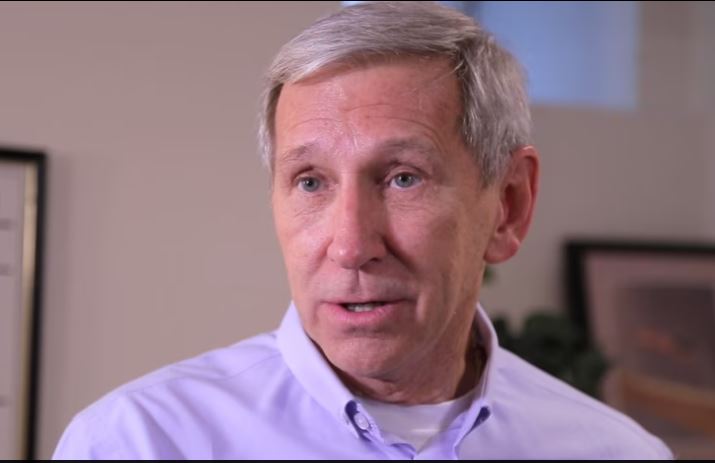 In recent years, the world has seen a number of significant large-scale disasters; some caused by nature and some caused by humans. For many, the words “disaster” or “crisis” evoke images of buildings in shambles, decimated communities, and families who are homeless and uncertain where their next meal will come from. Until recently, these disasters included only such events as tsunamis, earthquakes, hurricanes, floods, and terrorist attacks. These days it is the coronavirus that is bringing us pictures of people wearing masks, being quarantined, schools closing, and so on. This current crisis has wreaked havoc with the stock market and the investments of millions of people. That alone is creating an economic crisis.
In recent years, the world has seen a number of significant large-scale disasters; some caused by nature and some caused by humans. For many, the words “disaster” or “crisis” evoke images of buildings in shambles, decimated communities, and families who are homeless and uncertain where their next meal will come from. Until recently, these disasters included only such events as tsunamis, earthquakes, hurricanes, floods, and terrorist attacks. These days it is the coronavirus that is bringing us pictures of people wearing masks, being quarantined, schools closing, and so on. This current crisis has wreaked havoc with the stock market and the investments of millions of people. That alone is creating an economic crisis.
Indeed, the current financial crisis has been referred to as an “economic tsunami”. Undeniably, the current conditions have caused communities to come to a complete standstill. The trauma has been severe for many companies, and leaders worldwide have spoken in terms usually reserved for those occasions when a hurricane or earthquake has occurred. Rallying cries of hope and promises for “a full recovery” can be heard from leaders across the globe.
In the United States, since the disaster of 9/11, there has been significant research in the areas of Disaster Psychology and Human Communication which offer important insights into how people operate and what motivates them during times of crisis. For political leaders and business professionals, understanding some important disaster principles and practices can mean the difference between success and failure as the crisis and subsequent economic troubles unfold.
Drawing on more than 60 years of combined experience of helping people in both global disasters and private crises, we will outline some of those critical concepts, combined with concrete examples, to help you succeed in getting your message to your target audience in these difficult times.
If you are a business leader, it is critical you accept that the current economic environment could, indeed, be equivalent to a fiscal earthquake. For many, everything they considered safe, strong, and protected, is now gone, in a relative instant. It may have occurred as a result of loss of employment, loss of investment, ill health or other circumstance beyond their control.
However, there are three principles that can universally help stabilize and support those who have been impacted by crisis or disaster. Business and political leaders would be well advised to lean heavily on these principles as they attempt to help those who rely on them to find a way through the recovery process. Although we are experiencing both a health and economic crisis, we know from the aftereffects of countless disasters across the world, money alone will not guarantee a smooth or healthy recovery process. There is a psychological component to every crisis that requires us to understand and address the FUD factor, (Fear, Uncertainty, and Doubt) in order to get the greatest impact from any and all of our other recovery efforts.
That very same stunned response is once again familiar to many who are at a loss for how to understand what is happening with our health and our economy and what they should do next to protect themselves and their families. This type of psychological response is not uncommon in times of extreme circumstances. The severity of the situation, as measured by a wide variety of personal and communal yardsticks, significantly dictates how long our disorientation will last.
When faced with threatening situations, humans respond primarily in one of the following ways; fight, flight, or freeze. In this current situation, as in other crises, there are multiple factors that will determine which of these responses governs an individual’s behavior. Previous experiences, available supports and resources, and perceived effectiveness can all contribute to either a positive or a negative outcome for people dealing with crisis
Safety, predictability, and control are the three most important principles for recovery from any form of crisis or tragedy. Whether the crisis has resulted from, the coronavirus, a natural disaster, a terrorist attack, a sexual assault, or a collapsed economy, these principles should be central to all efforts intended to restore stability to those affected. These simple principles have guided successful interventions for individuals, communities, and governments around the world following some of the worst disasters in history. Universally, people impacted by crisis feel helped, and are better able to play their part in the recovery process when those designing the recovery pay attention to these three principles:
Safety
Following a natural disaster, in which homes are destroyed and lives are lost, it is easy to identify the safety concerns of those in the disaster area. Worries about obtaining food and shelter or assuring the health and security of their loved ones are at the forefront of many victims’ fears. For many, safety during this health and economic crisis is equally uncertain. Anxieties about keeping your family and loved ones healthy, worries about whether or not you be able to get your healthcare needs met are commonplace fallout from this current crisis. Feeling safe is a basic human need that should be repeatedly and adequately addressed in every crisis or disaster recovery operation.
“Are you OK?” “You’re safe now.” “I’ve got you.” “Everything’s going to be fine.” “Help has arrived.” These are typical comments made by those arriving on the scene of a disaster and attempting to provide a modicum of solace to victims. So, when business and political leaders must communicate in this time of health and economic crisis it is important to begin your message, when possible, with the re-assurance of the safety and security of any part of the business or service that can provide a feeling of safety or security to employees, citizens and others. Listeners are all too aware of the crisis factors. They need to hear about any and all aspects of life as it used to be which are still intact. The need for this information is second only to actual lifesaving information. Listeners want to know you are aware of the crisis fears they face, and want to hear about how you can help allay those fears.
Predictability
Although many of us complain about how repetitive and predictable our lives are day in and day out, one of the first things people seek during a crisis is a sense of predictability in their world. When a crisis upends our lives and throws everything we knew into question, the one thing we seek is familiarity. We want our “old lives” back. We want things to “get back to normal”. We need to know what we can count on to help us regain our equilibrium. For this reason, routines, stability and predictability become critical to the recovery process during a crisis. Because crisis situations are by definition anything but business as usual, political and business leaders should help their constituents identify stable and predictable footing on the path to recovery.
To help others with this, political and business leaders should acknowledge what things have not suffered. What resources are still reliable? During this crisis period what new elements of care and provision will be put in place? How will people be able to access them? The answers to these and similar questions should structure declarations and directions made by all leaders. Whenever possible, announce specific times, dates, and locations of available resources. The very fact that you are going to provide these resources will help victims see a possible path to safety and control during this turbulent time. Although some will see this type of communication as merely pointing to a silver lining, victims of crisis and disaster will see it more as a lifeline.
Control
While the concept of control may seem antithetical to the nature of a crisis, it is a key component to the long-term recovery for impacted individuals and systems. Psychologically speaking, crises have relatively predictable stages. The stage which occurs during and immediately following a crisis event is known as the rescue stage. This is the period in which individuals and agencies, governments and businesses, offer tools and mechanisms to those affected in order to help restore control over functions lost. Victims typically embrace these resources and welcome any and all measures of support. But critical to the long-term recovery for individuals and communities is the knowledge that they are once again in control of their life and destiny and not dependent on outside interventions to survive.
Business and political leaders who do the best job of helping victims of disasters and crises, physical, economic, or otherwise, will inherently follow their messages of safety with indications of control over the situation and their plans to return control over the situation to the victims as soon as possible. “Actions are being taken to….” “I have instructed (the name of the appropriate person or department) to take the necessary steps to……” these are the types of “in control” comments that must be communicated to victims and others. Feeling in control increases when people have things to do. What actions can people take that will help them feel more in control of their lives, their goals, or their future?
During these tough health and economic times, people are, at least, anxious and at worst, traumatized by the physical and financial circumstances they face. Successfully connecting with people in this climate requires close attention. In fact, it is critical. So how do political and business leaders use these principles to guide their decisions throughout the recovery process? Simply by asking themselves at every step of the way, “Will this enhance a sense of safety, predictability or control?” If the answer is “yes” to any one of these conditions, then in all likelihood it’s a good step to take.
There are many opportunities for individuals, business, and political leaders to put these proven principles into practice. Disasters and crises are not new to the world. We can use all we have learned from the multitude of past disasters and crises to help us recover and move a little more smoothly through this current one.
Dr. Kevin Becker is a Clinical Instructor at Harvard Medical School, Department of Psychiatry/Beth Israel Deaconess Medical Center and Senior Partner at Organizational Resilience International, a global crisis management firm. www.oriconsulting.com
Dr. Dennis Becker has been an instructor in several schools at Harvard and at M.I.T. He is Chief Executive Officer and Senior Coaching Partner at The Speech Improvement Company, a global communication coaching firm. www.speechimprovement.com
This article first appeared on the The Speech Improvement Company blog at https://speechimprovement.com




